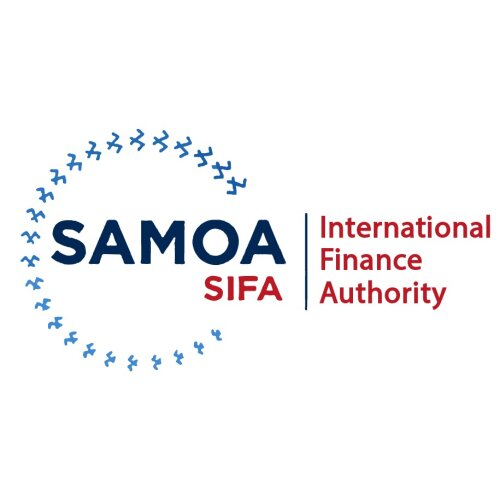Best Antitrust Litigation Lawyers in Samoa
Share your needs with us, get contacted by law firms.
Free. Takes 2 min.
Or refine your search by selecting a city:
List of the best lawyers in Samoa
About Antitrust Litigation Law in Samoa
Antitrust litigation in Samoa centers on ensuring fair competition and preventing practices that could harm consumers and businesses. The legal system seeks to address issues such as monopolies, price fixing, market allocation, abuse of dominance, and other forms of anti-competitive conduct. Antitrust litigation typically involves disputes between companies, government agencies, or consumers when there is an allegation that business practices have violated competition laws. In Samoa, these types of cases are addressed through both regulatory action and civil court proceedings.
Why You May Need a Lawyer
There are several situations where legal assistance is crucial in antitrust matters. If you suspect a competitor is engaging in unfair business practices that restrict competition, you may need legal advice to determine whether you have grounds for a case. Businesses accused of violating competition laws will also require expert legal help to navigate investigations by authorities or defend against civil claims. Additionally, if you are merging with or acquiring another company, legal counsel can help ensure your transaction does not breach antitrust regulations. Consumers harmed by anti-competitive conduct may also seek legal representation to pursue claims for damages or injunctions.
Local Laws Overview
Samoa’s competition and antitrust landscape is primarily regulated by the Competition and Consumer Act 2016. This legislation prohibits agreements, conduct, or business practices that substantially lessen competition in any market for goods and services within Samoa. Key aspects include bans on price fixing, bid rigging, market sharing, and abuse of dominant position. The Act empowers the Ministry of Commerce, Industry and Labour (MCIL) and the Regulator to investigate complaints and enforce the law through administrative or judicial proceedings. Breaches may result in penalties, injunctions, or orders for compensation. The courts of Samoa interpret and enforce these laws, providing both remedies and accountability.
Frequently Asked Questions
What is antitrust litigation?
Antitrust litigation refers to the legal process of resolving disputes relating to anti-competitive conduct, such as price fixing or monopolistic practices, under Samoa's competition laws.
Who enforces competition law in Samoa?
The Ministry of Commerce, Industry and Labour (MCIL) and the Regulator are the primary authorities responsible for the enforcement of competition law in Samoa.
What types of business practices can be challenged under antitrust law?
Examples include price fixing, bid rigging, abuse of market power, exclusive dealing, collusion among competitors, and agreements that limit free market competition.
Can consumers bring antitrust claims in Samoa?
Yes, consumers who have suffered loss or damage due to anti-competitive conduct may bring claims seeking compensation or other remedies.
What penalties can be imposed for breaching competition laws in Samoa?
Penalties include fines, injunctions to stop unlawful conduct, orders for compensation, or, in serious cases, dissolution of companies involved in persistent violations.
How do I know if I have an antitrust case?
An antitrust lawyer can review your situation, examine whether business conduct violated the Competition and Consumer Act 2016, and advise on the strength of your claim.
Is legal representation required in antitrust litigation?
While not always mandatory, antitrust cases are complex and professionally representing yourself may be challenging; legal counsel is strongly recommended.
Can mergers or acquisitions be blocked under antitrust rules?
Yes, proposed mergers or acquisitions that could substantially lessen competition may be reviewed and, in some cases, blocked or made subject to conditions by the authorities.
How are antitrust disputes resolved?
They may be settled by negotiation, mediation, or, if necessary, through court proceedings where a judge will determine whether the law has been breached.
What should I do if I receive an investigation notice from the MCIL?
Seek immediate legal advice to understand your rights and obligations, respond appropriately, and avoid potential self-incrimination or further legal exposure.
Additional Resources
For more information or assistance, consider the following resources relevant to antitrust law in Samoa:
- Ministry of Commerce, Industry and Labour (MCIL) - Enforces competition laws and accepts complaints
- The Regulator - Oversees certain regulated industries for compliance with competition standards
- Law Society of Samoa - Can help you find a qualified legal practitioner specializing in competition law
- Consumer advocacy organizations - Provide information and support to individuals affected by anti-competitive conduct
- Public libraries and university law faculties - Offer reference materials on current laws and recent cases
Next Steps
If you believe you are affected by anti-competitive practices or have been accused of breaching antitrust regulations, the following steps can help you move forward:
- Document all relevant events, communications, or transactions related to the issue
- Consult a lawyer experienced in antitrust litigation to assess your rights and options
- Contact the Ministry of Commerce, Industry and Labour if you wish to file a complaint
- Prepare to provide comprehensive evidence and information to support your claim or defense
- Stay informed about your legal obligations and be responsive to any official inquiries or proceedings
Proactive legal advice is invaluable in these complex matters. A qualified lawyer will guide you through investigations, regulatory actions, and court proceedings to help protect your interests, whether you are a business, consumer, or competitor in Samoa's marketplace.
Lawzana helps you find the best lawyers and law firms in Samoa through a curated and pre-screened list of qualified legal professionals. Our platform offers rankings and detailed profiles of attorneys and law firms, allowing you to compare based on practice areas, including Antitrust Litigation, experience, and client feedback.
Each profile includes a description of the firm's areas of practice, client reviews, team members and partners, year of establishment, spoken languages, office locations, contact information, social media presence, and any published articles or resources. Most firms on our platform speak English and are experienced in both local and international legal matters.
Get a quote from top-rated law firms in Samoa — quickly, securely, and without unnecessary hassle.
Disclaimer:
The information provided on this page is for general informational purposes only and does not constitute legal advice. While we strive to ensure the accuracy and relevance of the content, legal information may change over time, and interpretations of the law can vary. You should always consult with a qualified legal professional for advice specific to your situation.
We disclaim all liability for actions taken or not taken based on the content of this page. If you believe any information is incorrect or outdated, please contact us, and we will review and update it where appropriate.
Browse antitrust litigation law firms by city in Samoa
Refine your search by selecting a city.











